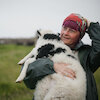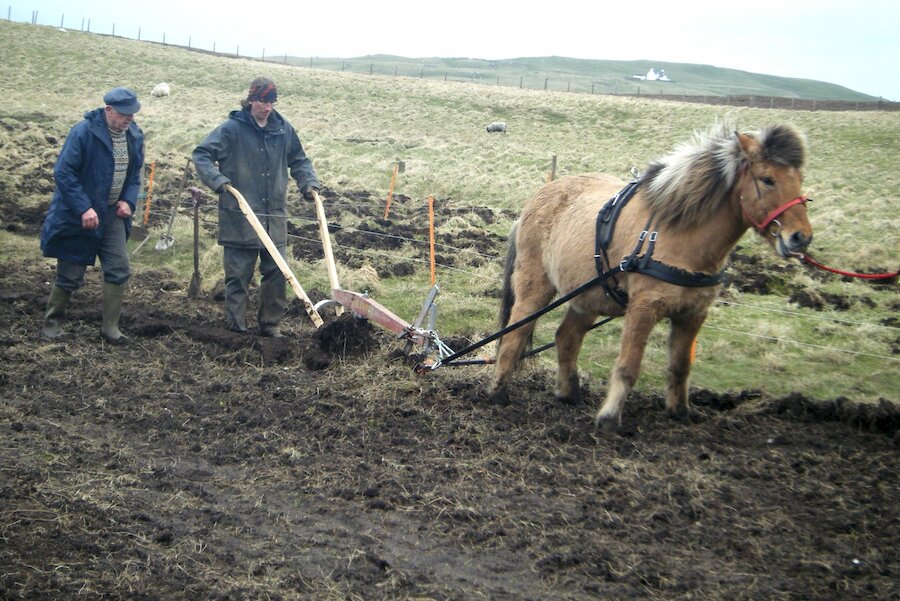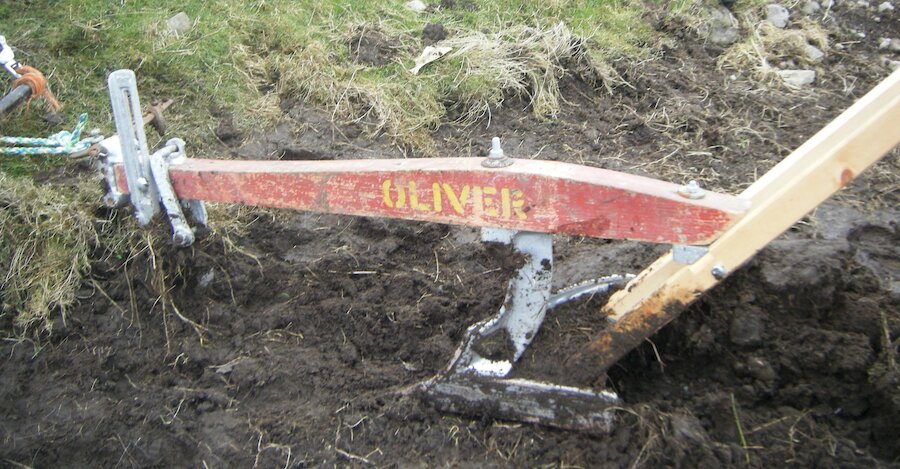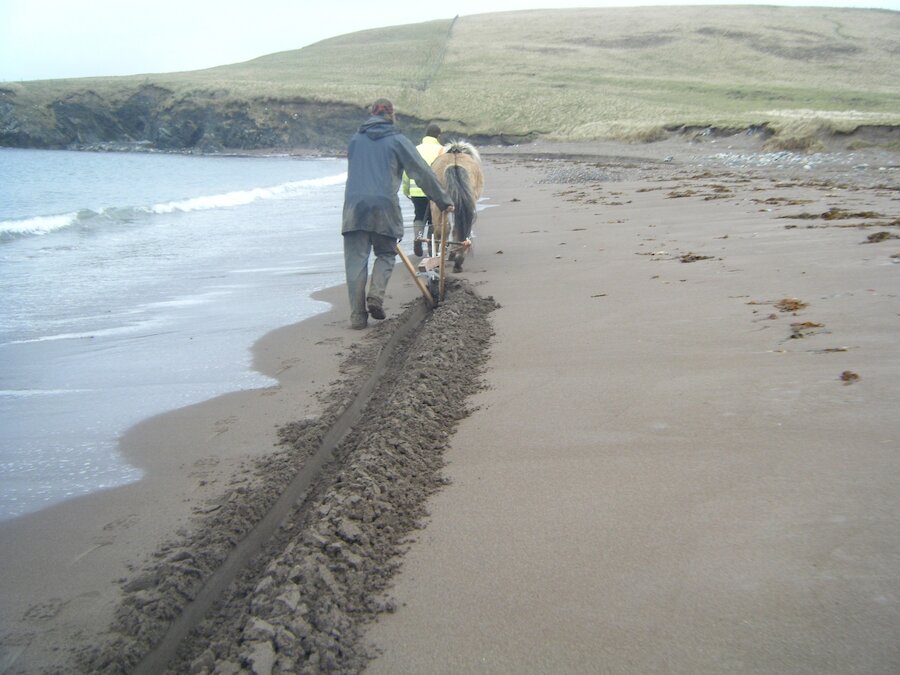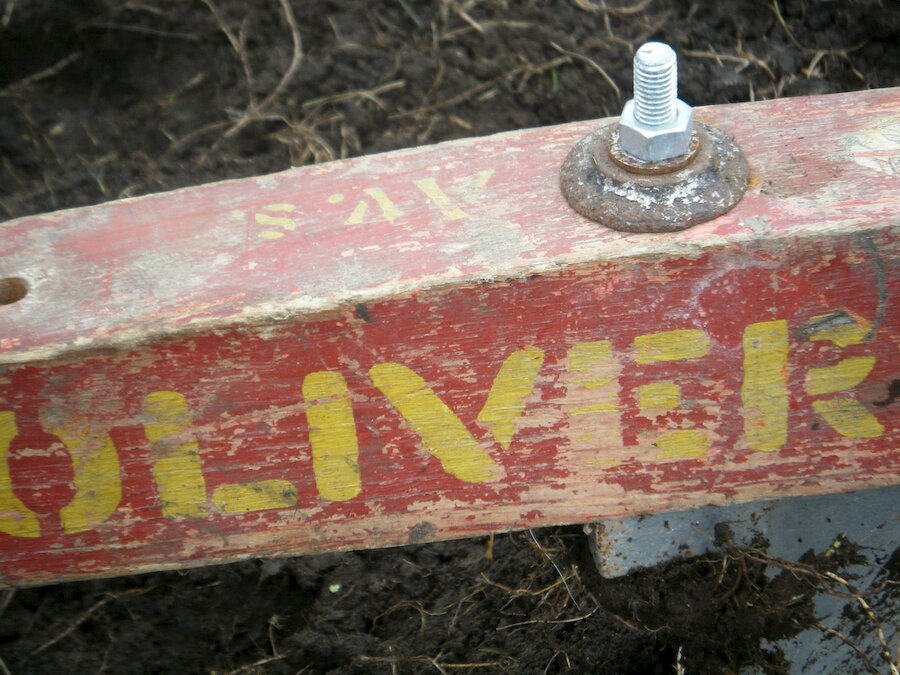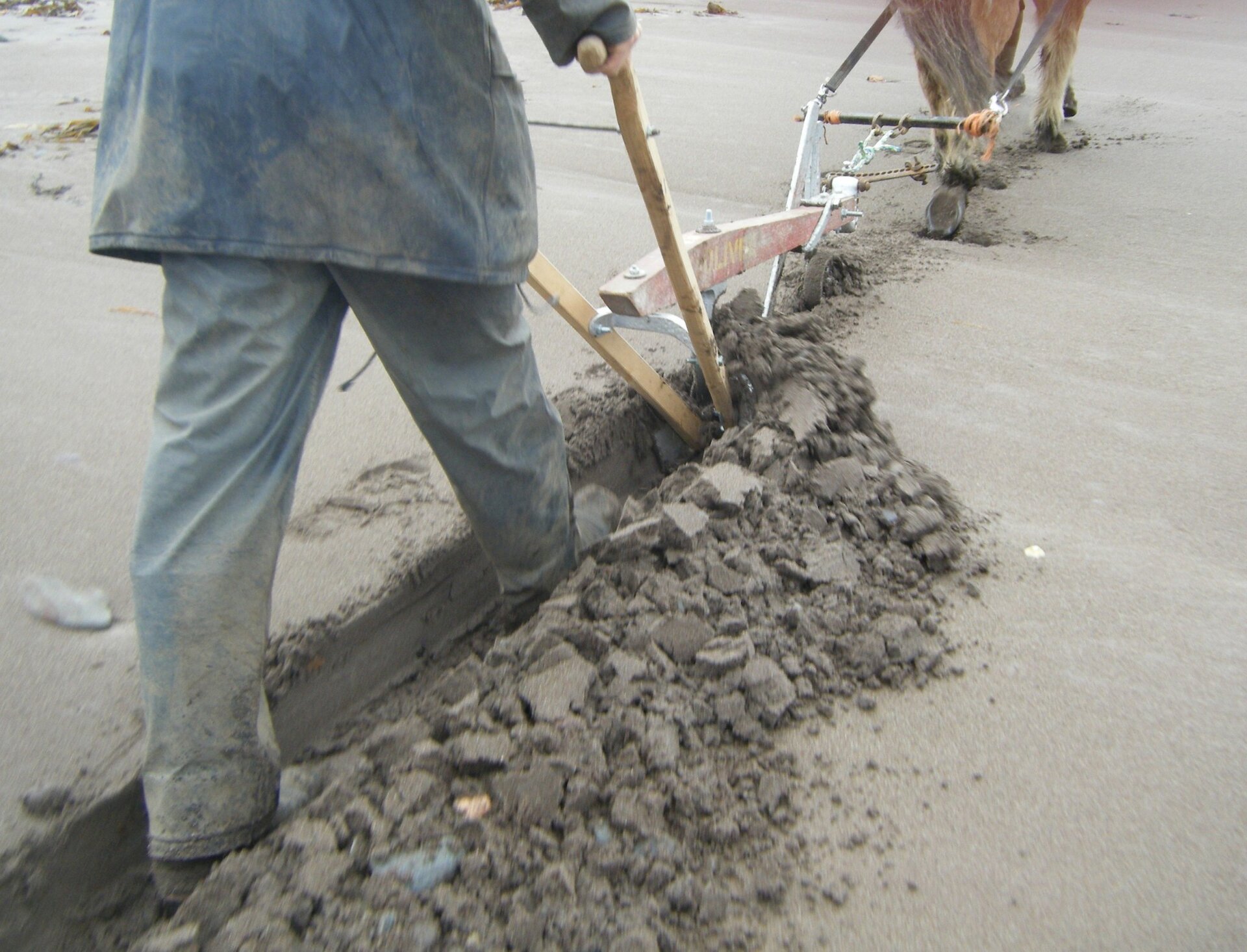On Sunday 12th October we head south to do something we have been talking about for years. We are going to learn how to use working horses to do the heavy ground preparation ready for planting and to keep on top of the weeds.
We have to travel to Devon. You couldn't get much further away and still stay in Britain, but that's where Chagfood is (http://www.chagfood.org.uk/). Like us, they grow veg and work with the local community to involve them in food production. They have been using horses since 2010 and know a bit more about it than we do.
We have tried before though, a couple of years ago we bought an old Oliver plough from a Shetlander in the south mainland. He had collected bits of a few ploughs, entirely refurbished some and parts of others. We bought new bolts and made new handles then did some experimental ploughing using a friend's Icelandic horse and guidance from another, older, Shetlander. Unfortunately the horse was used to pulling a carriage and the ground was too wet so it was tough going for everybody involved. Not to be defeated we took the horse and plough to the beach and it worked a dream.
In fact when it comes to horses I've never really had anything to do with them. I'm not sure if I even like them. But then again I'd had nothing to do with sheep before we moved to Turriefield and they are now part of the fabric of the croft, playing their part in the fossil fuel reduced lifestyle we're aiming for.
If the horse power is successful then it will make a huge difference to the way we work the croft and the quantity of vegetables we can produce. In May it took three folk, four days to prepare the 50m x 35m area of ground ready for sowing carrot, parsnip, spinach and beetroot seeds. The soil has to be a finer tilth for seeds and weed free too, to give them a good start. If we can get to grips with the horses and horse drawn equipment, they will have it finished in less than a day.
We have never used a tractor, all the land has been cleared by pigs and hard labour. When we first started I considered asking a friendly local to bring his tractor and plough the whole growing area, but Alan was adamant we would use no fossil fuel powered machinery at all. He also argued that we needed to learn and develop as we expanded our growing area slowly, and of course he was right. If we'd been faced with 3 acres to sow, plant up and keep weed free in those early days we would have given up after the first season. At least now we know what we can get away with and what we can't ignore. We have developed methods and tactics that only experience refines into smooth(ish) systems that have matured over time.
And then of course there's the horse poo. We get a fair amount of horse poo from a local source, but you can never have enough and another couple of animals would add a lot to the manure pile. Tractors don't give you that either.
We have had a few strange looks and folk shaking their heads in disbelief when we say we don't use tractors. But tractors take cash. To buy them, to house them, to fuel them and to maintain them. We have a relatively small area of land to work and we would argue it is impractical to use heavy machinery, which would damage the soil structure so important for the productivity of the land. Then there is the fossil fuel issue.
We have chosen to make reductions in our fossil fuel use and carbon emissions by limiting the amount of diesel (or petrol) we use. Keeping our overall travel limited, not travelling by plane and using alternative transport wherever possible. So a tractor doesn't really fit with that lifestyle.
We have come to terms with the necessity of having to use the van to deliver our veg boxes. One van on a circuit is better than 20+ cars driving to us and we try to do lot of other things in that one journey if we can. Picking up pallets, tyres or WWOOFers; taking things to the dump for the community; delivering to Scoop and picking up the items of food we can't produce for ourselves. There are other things we need to do too to make the veg growing work like collecting the seaweed from the beach, which of course adds to the fossil fuel count of our produce. But the horses, if we can get to understand working with them, might help with that too and pull a cart or two full of seaweed up the road.
From there it is just a short step to imagining them delivering boxes around our local community, but first we need that training.
